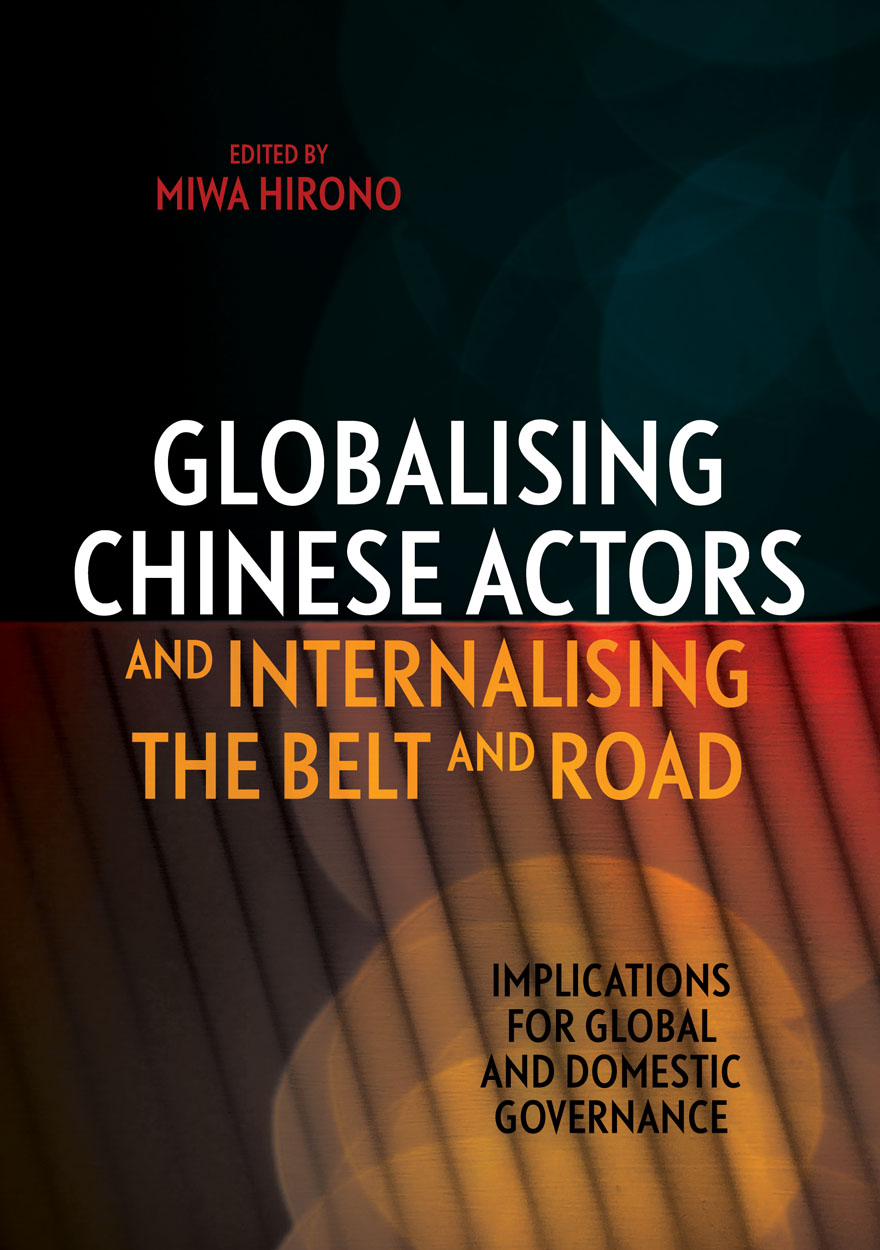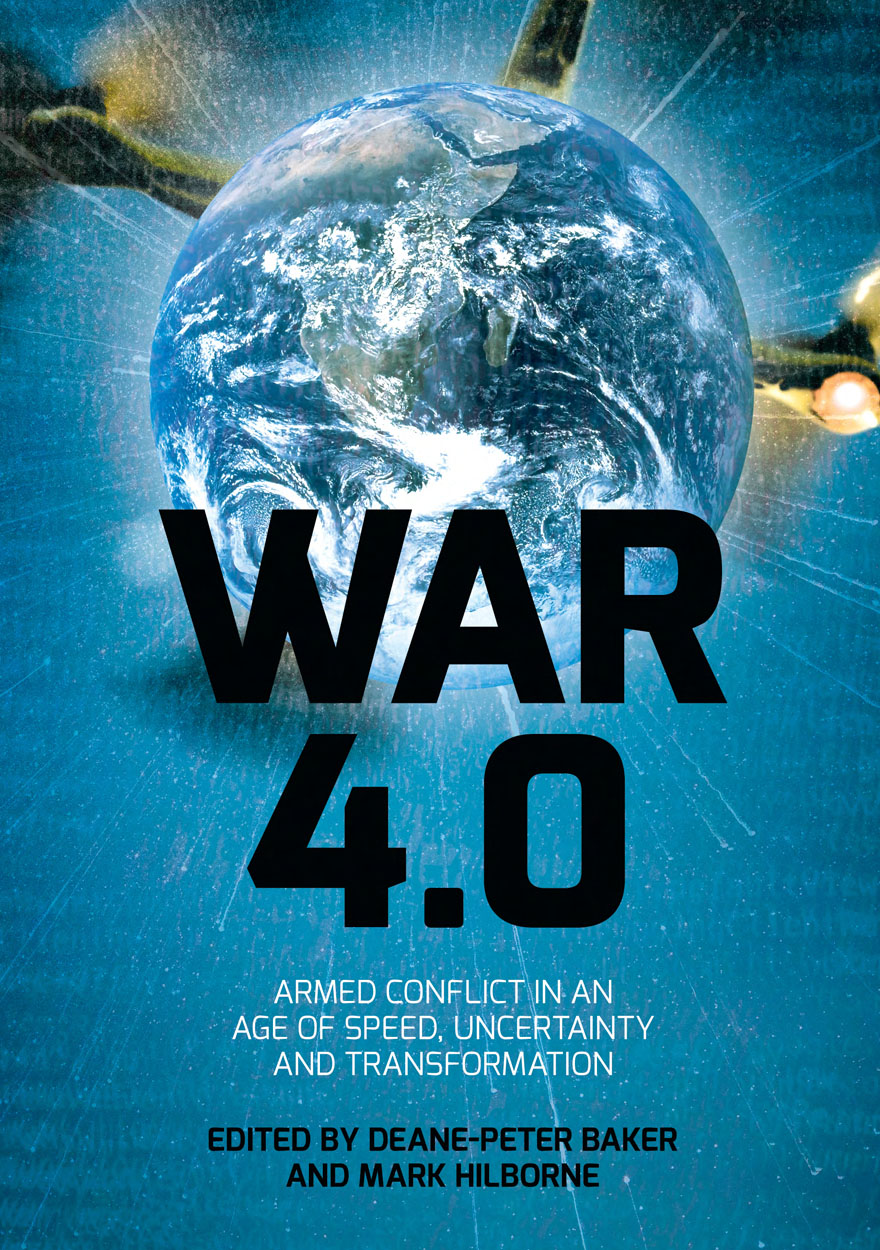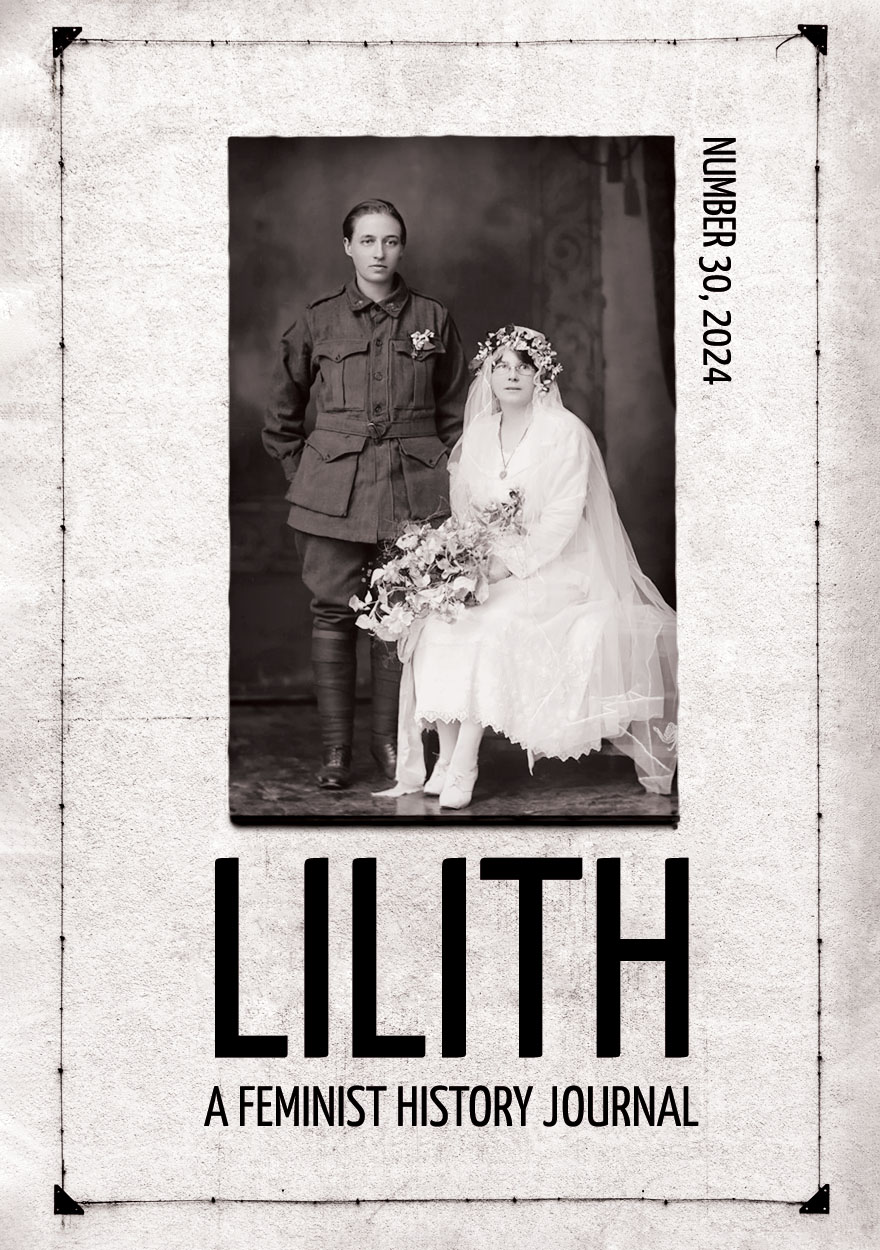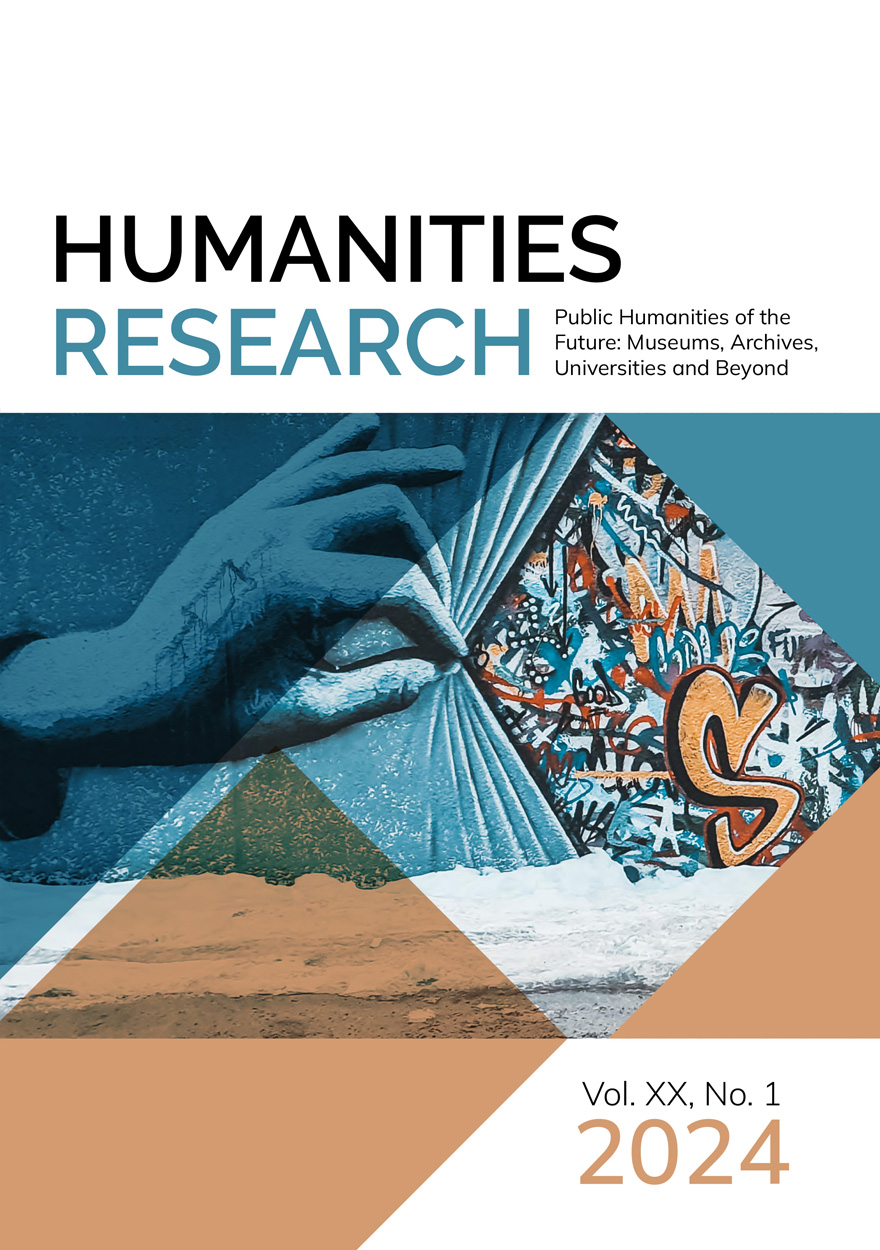Search titles
Displaying results 1 to 10 of 97.

Globalising Chinese Actors and Internalising the Belt and Road »
Implications for Global and Domestic Governance
Edited by: Miwa Hirono
Publication date: June 2025
The literature on the Belt and Road Initiative (BRI) points out either its negative or positive impacts on global and domestic governance. However, such a dichotomy is too simplistic, not least because it tells us little about the complexity of change in the nature of the BRI as it is implemented. This book argues that the BRI manifests an intricate dynamic comprising two contradictory tendencies: Xi Jinping’s top-down and centralised approach to policymaking, with its focus on producing robust Chinese actors who can succeed in a competitive global economy; and a fragmented and decentralised reality made up of an expanding range of actors engaged in realising myriad BRI projects on the ground. The co-existence of these two contradictory tendencies implies that the BRI has a multidimensional impact on global and domestic governance in general, and on the role of Japan in countries where BRI projects take place. Japan matters because of its ‘in-between’ position between non-Western donors and the Development Assistance Committee of the Organisation for Economic Co-operation and Development, a position that offers a unique dimension to a frequently dichotomous discussion of the BRI. Globally, China’s promotion of the BRI has strengthened an aspect of global governance, the ‘open economy’, while at the same time fostering the Chinese nuance of a ‘planned economy’. Domestically, a Chinese-style approach to state management and investment without political conditions may set back democratisation efforts in emerging countries, but the BRI has also given rise to a renewed sense of democracy in those countries. These multidimensional impacts enable China and Japan to find an on-the-ground complementarity in their approaches to development aid in relation to future cooperation.

War 4.0 »
Armed Conflict in an Age of Speed, Uncertainty and Transformation
Edited by: Deane-Peter Baker, Mark Hilborne
Publication date: April 2025
This volume explores the impact of technology and new domains on future warfare. It identifies several themes, and highlights the increasing complexity of the security environment and the uncertainty of future war. The sense of time and speed has been, and is being, compressed by developments in quantum technologies, the cyber domain, artificial intelligence, the increased capabilities of sensors and data collection, as well as new propulsion technologies such as hypersonic designs. Concepts regarding the shape and extent of the battlefield are challenged by the notion of hybrid war and sub-threshold tactics, as well as new domains in which competition is increasing, such as space. Further challenging the shape of the battlefield is the increased development of remote and autonomous warfare. Commercial developments will affect how military production is owned and managed, and how military forces are composed.
Thus, a confluence of new technologies exists, combining to create the potential of fundamental transformation at many levels. This wave of technological change has been called the Fourth Industrial Revolution (4IR), characterised by an exponential rather than a linear rate of change, generated by convergence and complementarity of emerging technology domains. These may not affect the fundamental Clausewitzian nature of war, but they will likely affect its character. From a military perspective, the key will be the impact on the speed of operations and on the shape of the operational domain—the factors of time and space. The combination of these shifts will increasingly affect the perception of states and the degree of certainty in approaching and engaging in conflict.

Lilith: A Feminist History Journal: Number 30 »
Publication date: March 2025
The 2024 issue of Lilith benefited from some unusual contributions from international scholars from South Africa, Finland, the US and the UK, and from Australian-based researchers at the University of NSW, The Australian National University, Western Sydney University, the University of Melbourne, the University of New England, James Cook University, the Australian Catholic University, Charles Darwin University and the University of Wollongong. Many of these researchers participated in our 2023 Lilith Symposium at ACU Melbourne on ‘Gender & Joy’ in feminist history, which benefitted from inspirational keynote addresses by Professor Katie Barclay (Macquarie University) and Dr Yves Rees (La Trobe University). This issue contains articles on historical themes as diverse as African pottery, theology, poetry and Black women’s joy, Paris trans identity and cabaret theatre, First World Wartime cross-dressing, British Enlightenment women’s writing, early twentieth-century domestic servants in South Australia, and working girls’ clubs in Chicago. Our eight book reviewers evaluated works on visual cultures of pregnancy, Japanese biopolitics of reproduction, international women peace advocates, women in the Whitlam government, the wife of George Orwell, the global history of courtship, and both Pakistani and Australian histories of motherhood.
As in other issues of Lilith in recent years, 2024 saw a balance of local Australian histories which uncovered new aspects of gendered concepts and identities of the past, along with comparative intercultural inquiries, highlighting the importance of internationalisation in movements beginning on one context but later influencing several others. This volume also showcases the engagement in history of scholars from other disciplines who share our desire to honour and celebrate the joy, laughter, struggle, resilience and survival of women and gender-diverse people of different races and cultures, past and present, across the world.
Download for free
Not available for purchase

Dictionary of World Biography »
Tenth edition
Authored by: Barry Jones
Publication date: January 2025
Jones, Barry Owen (1932– ). Australian politician, writer and lawyer, born in Geelong. Educated at Melbourne High School and Melbourne University, he was a public servant, high school teacher, television and radio performer, university lecturer and lawyer before serving as a Labor MP in the Victorian Parliament 1972–77 and the Australian House of Representatives 1977–98. He took a leading role in reviving the Australian film industry and abolishing the death penalty in Australia, and was the first politician to raise public awareness of global warming, the ‘post‑industrial’ society, the IT revolution, biotechnology, the rise of ‘the Third Age’ and the need to preserve Antarctica as a wilderness. In the Hawke Government, he was Minister for Science 1983–90, Prices and Consumer Affairs 1987, Small Business 1987–90 and Customs 1988–90. He became a member of the Executive Board of UNESCO, Paris 1991–95 and National President of the Australian Labor Party 1992–2000, 2005–06. He was Deputy Chairman of the Constitutional Convention 1998. His books include Decades of Decision 1860– (1965), Joseph II (1968), Age of Apocalypse (1975) and Knowledge Courage Leadership: Insights & Reflections (2016), and he edited The Penalty Is Death (1968, revised and expanded 2022). His bestseller, Sleepers, Wake! Technology and the Future of Work (1982, Fourth edition published in 1995) has been translated into Chinese, Japanese, Korean, Swedish and braille.
He received a DSc in 1988 for his services to science and a DLitt in 1993 for his work on information theory. Elected FTSE (1992), FAHA (1993), FAA (1996) and FASSA (2003), he is the only person to have become a Fellow of four of Australia’s five learned Academies. Awarded an AO in 1993, named as one of Australia’s 100 ‘living national treasures’ in 1997, he was elected a Visiting Fellow Commoner of Trinity College, Cambridge in 1999. His autobiography, A Thinking Reed, was published in 2006 and The Shock of Recognition, about music and literature, in 2016. In 2014 he received an AC for services ‘as a leading intellectual in Australian public life’. What Is to Be Done was published in 2020.
Format: Hardback

Humanities Research: Volume XX, Number 1, 2024 »
Public Humanities of the Future: Museums, Archives, Universities and Beyond
Edited by: Kylie Message, Frank Bongiorno, Robert Wellington
Publication date: May 2024
‘Public Humanities of the Future: Museums, Archives, Universities and Beyond’ explores the roles, responsibilities and challenges of the humanities in 2024 and beyond. It examines if and how our public cultural institutions and disciplines engage ethically and meaningfully with the challenges of contemporary life, and sheds light on how the conception and practice of humanities research is developing institutionally as well as through collaboration with partners and communities beyond the university context.
This high-profile publication marks a number of historic moments, including the increasing urgency of the humanities in contemporary life, as well as the rapid development of interdisciplinary, digital and public humanities over the last decade, and the opportunities for international collaboration reflected in the post-COVID 19 resumption of international travel. It also marks the 50th-year anniversary of the Humanities Research Centre at The Australian National University, and the re-launch of Humanities Research.

International Review of Environmental History: Volume 9, Issue 2, 2023 »
Edited by: James Beattie
Publication date: February 2024
The histories and legacies of extraction and toxicity are innumerable. Globally, these forces have both facilitated and been a by-product of industrial growth, technological advancement and nation-building for centuries, but so too have they enabled and exacerbated environmental degradation, structural inequality, and the continued colonisation of lands and peoples. In addressing the histories and legacies of extraction and toxicity, this special issue of the International Review of Environmental History draws attention to several of the most pressing themes taken up by historians dealing with these processes. The papers within explore how extraction and toxicity have been woven into the colonial fabric of various countries, the ways that the exploitation and contamination of specific landscapes have come to define the history of such places and spaces, the response of various groups to these processes, and the extent to which long-term environmental consequences wrought by extractive practices and their toxic by-products are—in many cases—yet to be revealed. The articles in this special issue span Australia, Africa, the Pacific, and the Southern Ocean, consider the 19th, 20th, and 21st centuries, and draw on a range of disciplinary methods and perspectives. What binds them together is a deep engagement with the significant legacies of extraction and toxicity that endure into the present and inform contemporary environmental debates.

Lilith: A Feminist History Journal: Number 29 »
Publication date: December 2023
The 2023 issue of Lilith showcases the journal’s dedication to encouraging underrepresented voices in historical writing, including early-career scholars, First Nations voices and historians from diverse linguistic and cultural backgrounds. Six of the research articles in the issue focus on nineteenth and early twentieth-century topics, with papers on women’s roles in interwar international diplomacy, on Indian prostitution under British colonialism, on the relationship between interracial rape and white femininity on the Australian colonial frontier, on the role of gender in the NSW Shipwreck Society of the late nineteenth century, and on the struggle of women for public lavatories in 1912 Meanjin (Brisbane). Two of the research articles concern more recent histories, with papers on the role of Māori women in feminist movements of the 1970s, and the construction of sexual consent in Dolly Magazine of the late twentieth century. There is also a review essay about global histories of feminism and gender struggle which evaluates several recent such works, reflecting on their methodological innovations and concerns. The edition includes six short book reviews that span a wide range of international and local interests, covering topics such as the digital humanities, the global history of sexual violence, US queer history, Australian queer women’s history, gender in European colonial travel, and the history of the pram in Australia.
Several of the articles in the volume concern the international engagement of feminist struggles and intercultural questions in relation to gendered roles in history, while others gesture beyond the concerns of historical studies alone, addressing issues of rape culture, political activism, women’s spaces, and gendered emotions, making valuable contributions to the wider Australian humanities and social sciences. The volume exemplifies the value of balancing international trends in feminist history with the recognition of local episodes in the history of gender struggle, underscoring Lilith's commitment to advancing new forms of feminist historical writing and showcasing innovative research by scholars at diverse career stages.
Download for free
Not available for purchase

The Compleat Busoni, Volume 3 »
Ending to Dr. Faust and the definitive realisations of the Fantasia Contrappuntistica
Authored by: Larry Sitsky
Publication date: November 2023
VOLUME 3: I. Ending to Dr. Faust II. Definitive version of the Fantasia Contrappuntistica for two pianos III. Concerto for Orchestra: Completion and orchestration of the Fantasia Contrappuntistica.
Larry Sitsky, professor emeritus at The Australian National University, is an internationally known composer, pianist, scholar, and teacher. His books are fundamental reference works on subjects such as Australian piano music, the 20th-century avant-garde, the piano music of Anton Rubinstein, the early 20th-century Russian avant-garde, and the classical reproducing piano roll.
The Compleat Busoni is the result of Sitsky’s lifelong focus on the composer Ferruccio Busoni. Over three volumes, Sitsky surveys Busoni’s vast output, provides an ending to the unfinished opera Dr. Faust, and presents definitive realisations of the Fantasia Contrappuntistica in two-piano and orchestral versions. New insights into Busoni’s style and aesthetics are an integral aspect of this work.
Format: Hardback

The Compleat Busoni, Volume 2 »
Busoni’s other music: A complete survey
Authored by: Larry Sitsky
Publication date: November 2023
VOLUME 2: Busoni’s other music: A complete survey.
Larry Sitsky, professor emeritus at The Australian National University, is an internationally known composer, pianist, scholar, and teacher. His books are fundamental reference works on subjects such as Australian piano music, the 20th-century avant-garde, the piano music of Anton Rubinstein, the early 20th-century Russian avant-garde, and the classical reproducing piano roll.
The Compleat Busoni is the result of Sitsky’s lifelong focus on the composer Ferruccio Busoni. Over three volumes, Sitsky surveys Busoni’s vast output, provides an ending to the unfinished opera Dr. Faust, and presents definitive realisations of the Fantasia Contrappuntistica in two-piano and orchestral versions. New insights into Busoni’s style and aesthetics are an integral aspect of this work.
Format: Hardback

The Compleat Busoni, Volume 1 »
Busoni and the piano: The works, the writings, and the recordings
Authored by: Larry Sitsky
Publication date: August 2023
VOLUME 1: Busoni and the piano: The works, the writings, and the recordings.
Larry Sitsky, professor emeritus at The Australian National University, is an internationally known composer, pianist, scholar, and teacher. His books are fundamental reference works on subjects such as Australian piano music, the 20th-century avant-garde, the piano music of Anton Rubinstein, the early 20th-century Russian avant-garde, and the classical reproducing piano roll.
The Compleat Busoni is the result of Sitsky’s lifelong focus on the composer Ferruccio Busoni. Over three volumes, Sitsky surveys Busoni’s vast output, provides an ending to the unfinished opera Dr. Faust, and presents definitive realisations of the Fantasia Contrappuntistica in two-piano and orchestral versions. New insights into Busoni’s style and aesthetics are an integral aspect of this work.
Format: Hardback



